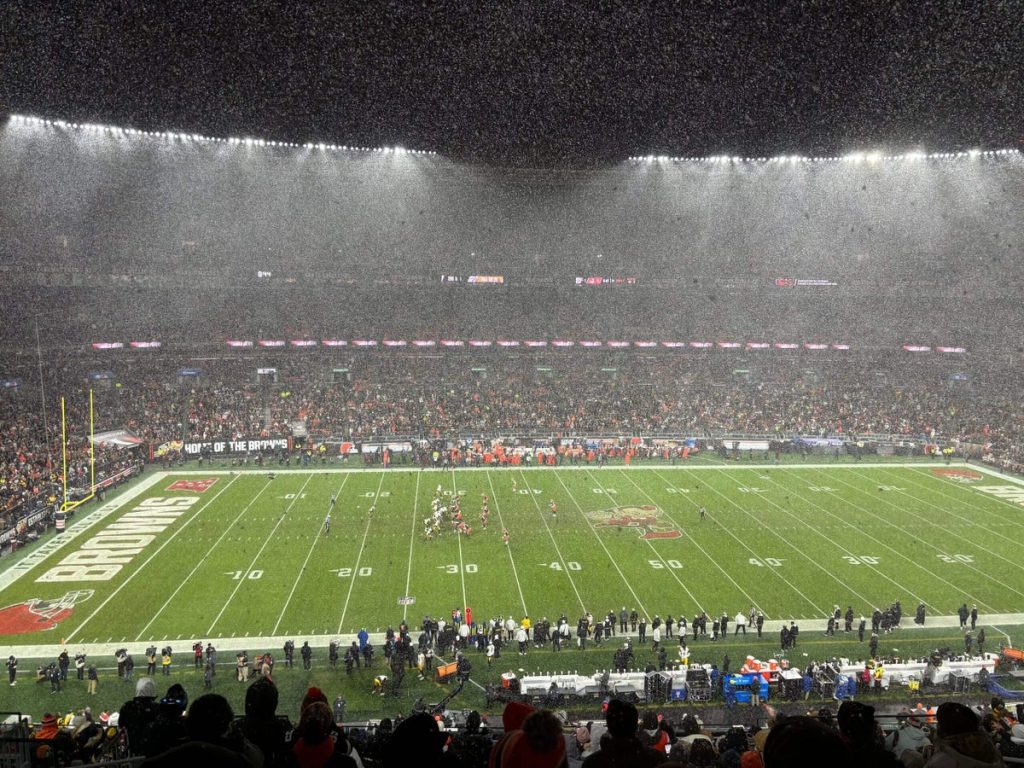Browns Proceed with Indoor Stadium Plans
The Cleveland Browns are advancing their plans to construct an indoor stadium in Brook Park, a suburb located fifteen minutes southwest of Cleveland. The public dispute about the potential relocation of the team continues to escalate.
Mayor’s Response
This week, Cleveland Mayor Justin Bibb expressed to Fox 8 News that the city has “more important priorities than the Cleveland Browns,” emphasizing the need to “move on.” He added, “If they go to Brook Park, God bless them. Good luck.”
Clarifying the City’s Position
Following these remarks, the mayor’s office released a statement indicating that Cleveland intends to fight to keep the Browns in the downtown area, despite the Haslam Sports Group’s plans for the new stadium in Brook Park, which is near the team’s training facility in Berea.
Team Owners’ Intentions
Team owners Jimmy and Dee Haslam have been exploring stadium options for a long time. They have consistently favored building a new indoor facility over renovating the existing Huntington Bank Field, with their current stadium lease set to expire after the 2028 season.
Financial Commitments
The Haslam Sports Group has committed $1.2 billion in private investment towards the Brook Park facility, and they plan to cover any cost overruns. With an estimated total cost of $2.4 billion, the Browns are also seeking $600 million in bonds from both the state and Cuyahoga County, which would be repaid through tax revenues generated by the new project.
Legal Disputes and Regulations
The situation involves not just financial aspects, but also legal challenges surrounding the Modell Law, which mandates specific restrictions on teams receiving taxpayer funds. The city has sought to enforce this law against the Browns, arguing that relocating would violate the agreement, while the team maintains that it can relocate freely after its lease expires.
Ongoing Controversy
As the debate progresses, Mayor Bibb has criticized the Brook Park project, referring to it as “the Haslam scheme” that could lead to higher taxes and take events away from downtown. This has sparked a broader discussion about how best to utilize the downtown land where the existing stadium is located, amid ongoing disputes between the city and the Browns.



